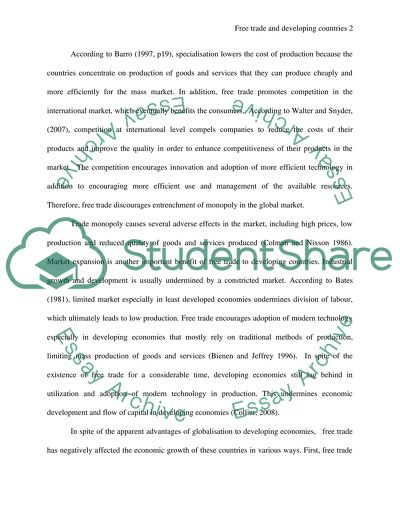Cite this document
(“Free Trade and Developing Countries Essay Example | Topics and Well Written Essays - 2000 words”, n.d.)
Retrieved from https://studentshare.org/macro-microeconomics/1445337-the-advantages-of-trade-to-developing-countries
Retrieved from https://studentshare.org/macro-microeconomics/1445337-the-advantages-of-trade-to-developing-countries
(Free Trade and Developing Countries Essay Example | Topics and Well Written Essays - 2000 Words)
https://studentshare.org/macro-microeconomics/1445337-the-advantages-of-trade-to-developing-countries.
https://studentshare.org/macro-microeconomics/1445337-the-advantages-of-trade-to-developing-countries.
“Free Trade and Developing Countries Essay Example | Topics and Well Written Essays - 2000 Words”, n.d. https://studentshare.org/macro-microeconomics/1445337-the-advantages-of-trade-to-developing-countries.


